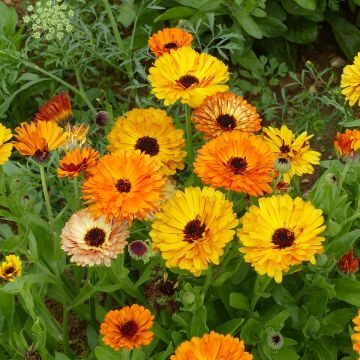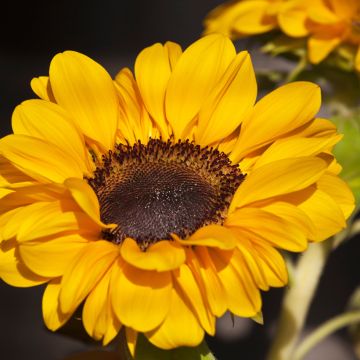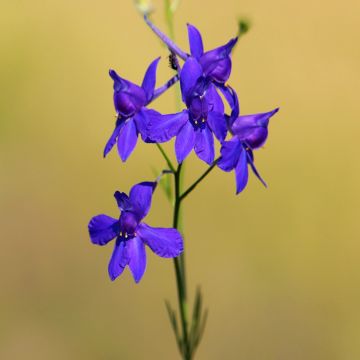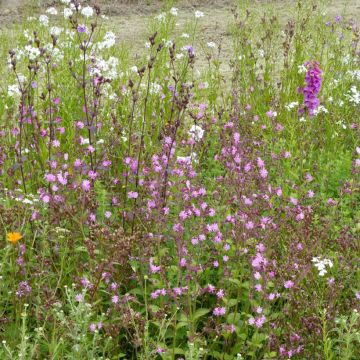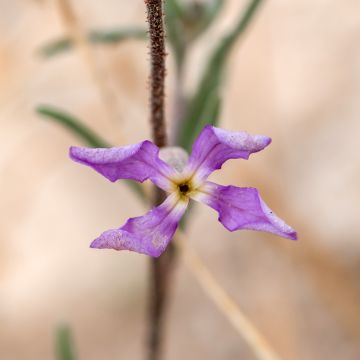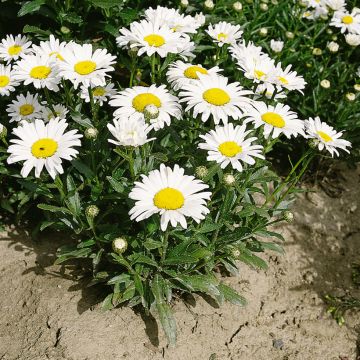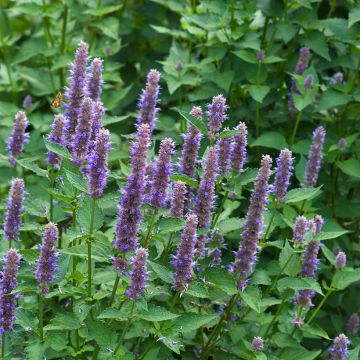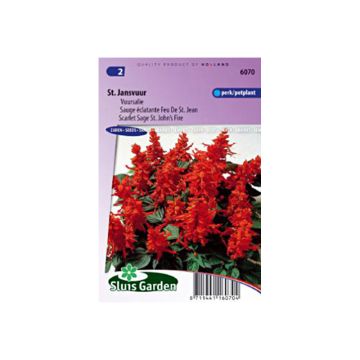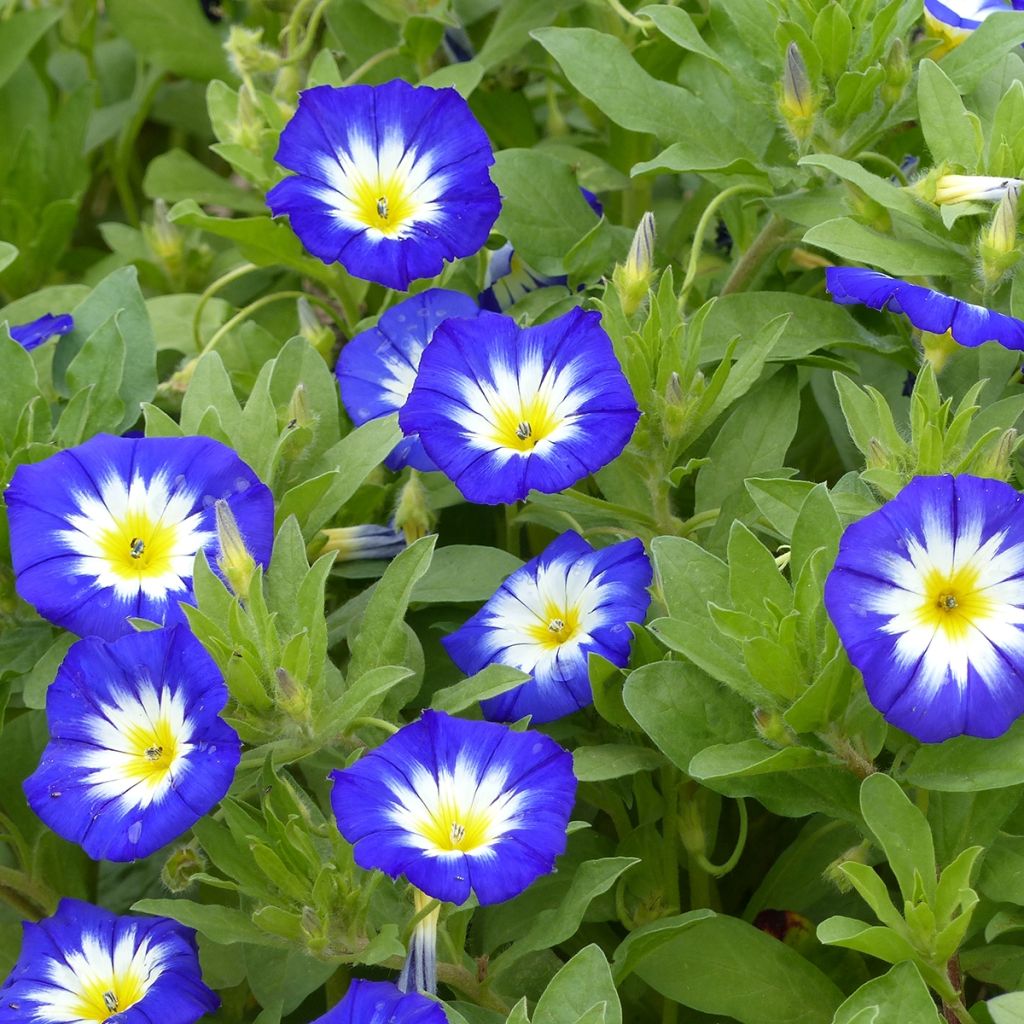

Graine de Belle de Jour Pavillon Bleu - Convolvulus tricolor Royal Ensign
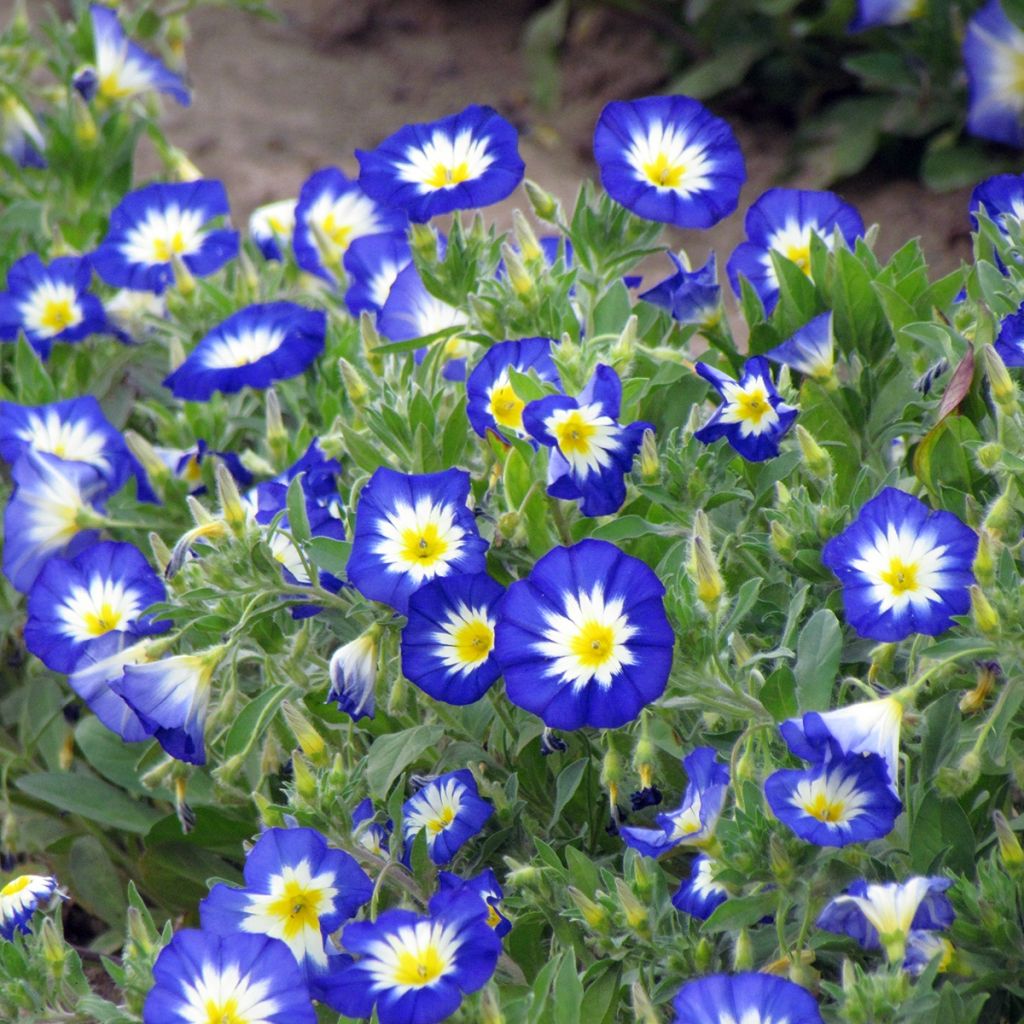

Graine de Belle de Jour Pavillon Bleu - Convolvulus tricolor Royal Ensign
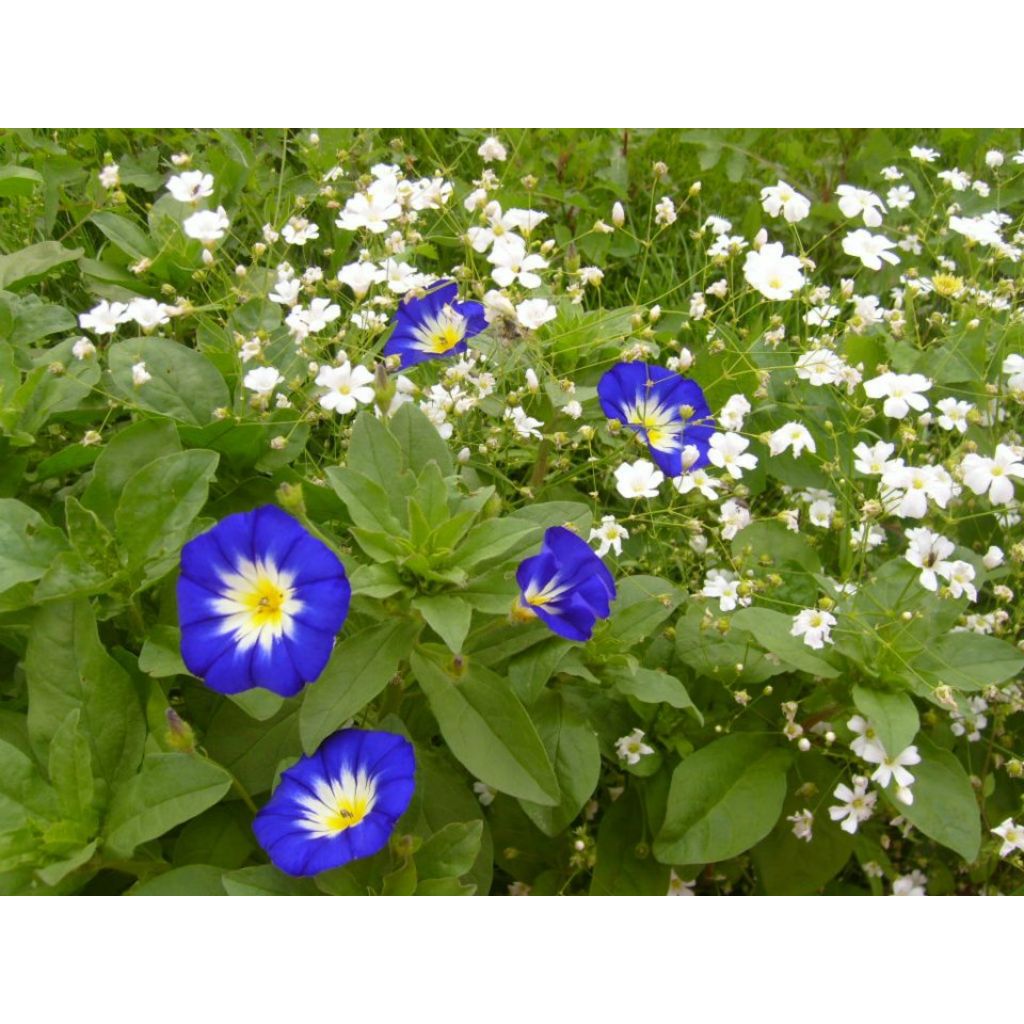

Blue Morning Glory - Convolvulus tricolor Royal Ensign seeds
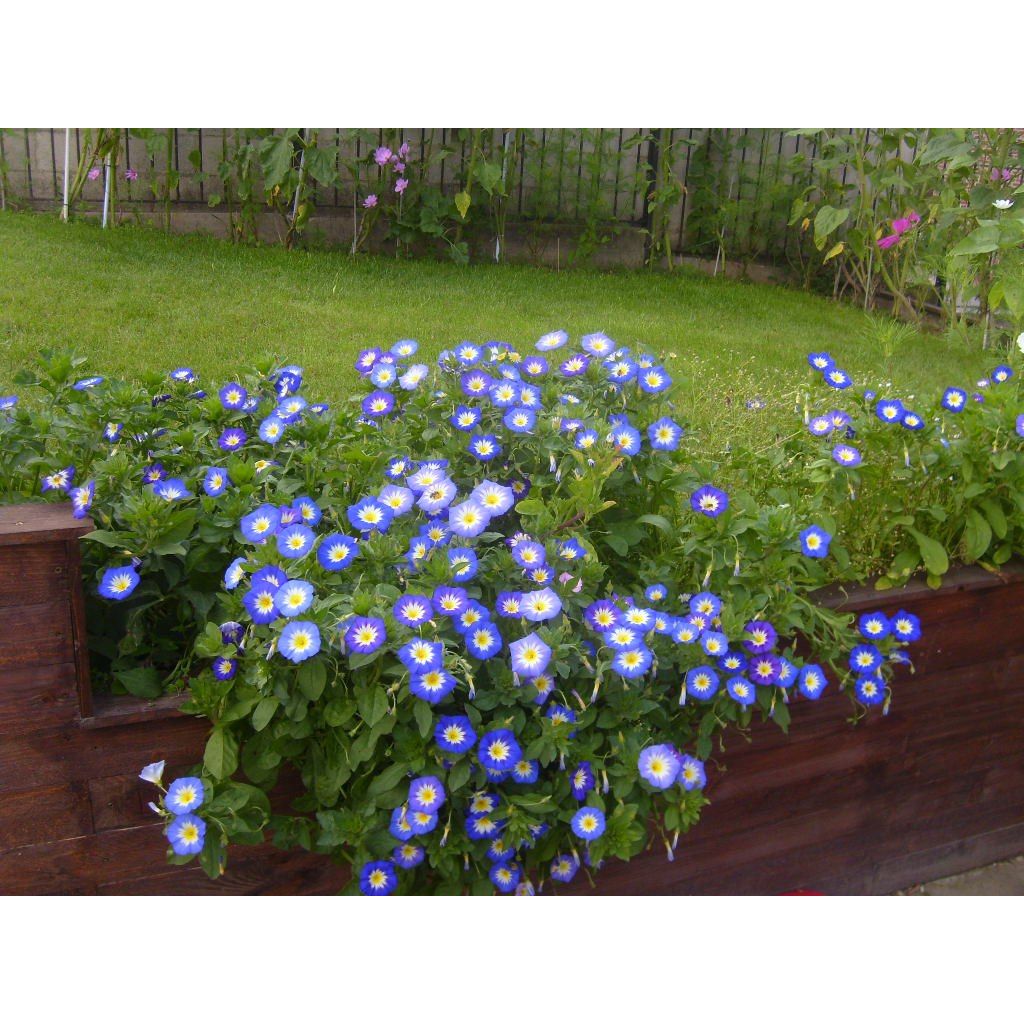

Blue Morning Glory - Convolvulus tricolor Royal Ensign seeds
Blue Morning Glory - Convolvulus tricolor Royal Ensign seeds
Convolvulus tricolor Pavillon Bleu
Very good purchase, flowers very beautiful.
William B., 30/07/2018
This item cannot be shipped to the selected country
Dispatch by letter from €3.90
Delivery to Corse prohibited
More information
Schedule delivery date,
and select date in basket
This plant carries a 6 months recovery warranty
More information
We guarantee the quality of our plants for a full growing cycle, and will replace at our expense any plant that fails to recover under normal climatic and planting conditions.
Seed-only orders are dispatched by sealed envelope. The delivery charge for seed-only orders is €3.90.
Delivery to Corse prohibited: UE law prohibits the import of this plant from mainland France to Corse as part of the fight against Xylella fastidiosa. Please accept our sincere apologies.
More information

Does this plant fit my garden?
Set up your Plantfit profile →
Description
The 'Pavillon Bleu' Morning Glory, also known as Convolvulus tricolor, is a compact and bushy annual. It is covered in bright blue flowers from June to September and enhances hanging baskets. Flowering and easy, it requires no maintenance and rewards beginners.
A cousin of the bindweed and morning glory, the morning glory has the typical flowers of the convolvulaceae family. These delicate trumpets unfold and curl up like an umbrella, under the sun's influence. They only last for a day and close in the late afternoon. However, its nickname "Morning Glory" suits it perfectly: every morning you appreciate the appearance of new flowers of a deep blue that is very bright, with a yellow centre bordered by white. This characteristic makes it very attractive for beginner gardeners or children, who will follow the daily evolution of this annual with satisfaction. In addition, its growth is quite rapid and it is not very demanding in terms of care or growing conditions, although a sunny exposure is recommended. However, be careful with children: the seeds and the plant are toxic if ingested.
Its rather bushy habit and height (16 cm) give it a privileged place in pots and in balcony planters. You can plant it alongside other annuals with vibrant colours, such as Bidens or orange Lantanas, to create a dynamic ensemble. But it also goes well with softer white neighbours, such as Diascas or Verbenas that it will highlight. Its longevity and floribundance will delight you.
Report an error about the product description
Blue Morning Glory - Convolvulus tricolor Royal Ensign seeds in pictures
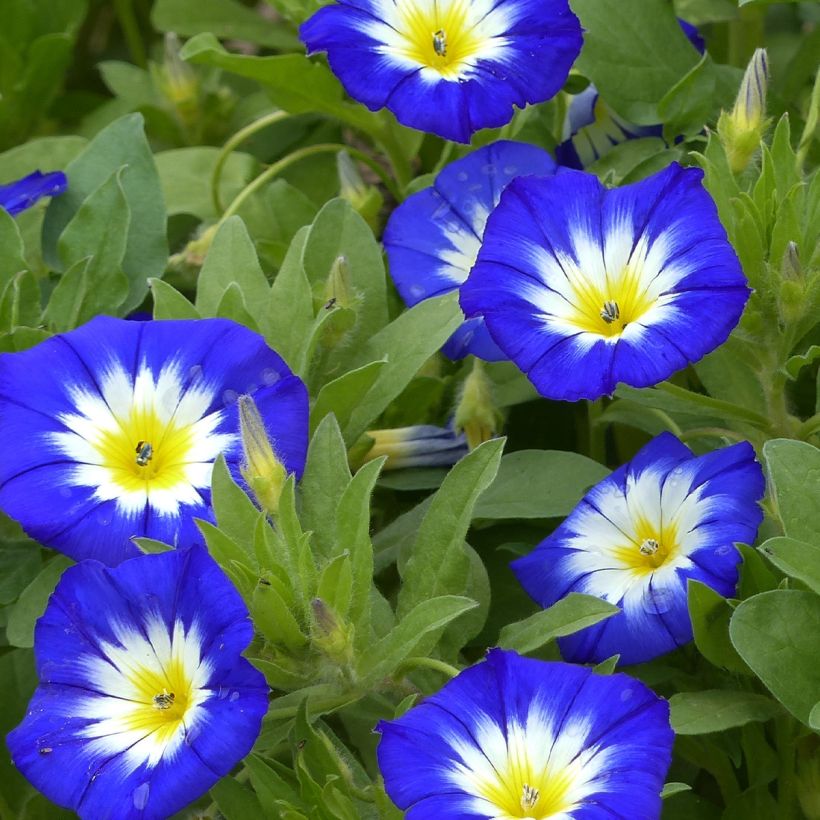

Flowering
Foliage
Plant habit
Botanical data
Convolvulus
tricolor
Pavillon Bleu
Convolvulaceae
Cultivar or hybrid
Other Morning Glory seeds
Planting and care
The 'Pavillon Bleu' Morning Glory is preferably sown under cover in a seed tray or pots from April, as the seeds will prefer temperatures above 20°C.
To facilitate germination, you can soak the seeds in water for about 2 hours. Then, you will place them at a depth of 3 cm (1.2 in) in a substrate that you will keep slightly moist. They will germinate between 5 and 14 days. When the seedlings are large enough to be moved, you can separate them and put them in pots if the frost period is not over, and keep them warm to later plant them in the ground if you wish. Otherwise, you can arrange them in planters or pots. You can gradually acclimatize them if the nights are still cool by taking them out of their shelter during the day.
Sowing period
Intended location
-
, onOrder confirmed
Reply from on Promesse de fleurs
Flower seeds
Haven't found what you were looking for?
Hardiness is the lowest winter temperature a plant can endure without suffering serious damage or even dying. However, hardiness is affected by location (a sheltered area, such as a patio), protection (winter cover) and soil type (hardiness is improved by well-drained soil).

Photo Sharing Terms & Conditions
In order to encourage gardeners to interact and share their experiences, Promesse de fleurs offers various media enabling content to be uploaded onto its Site - in particular via the ‘Photo sharing’ module.
The User agrees to refrain from:
- Posting any content that is illegal, prejudicial, insulting, racist, inciteful to hatred, revisionist, contrary to public decency, that infringes on privacy or on the privacy rights of third parties, in particular the publicity rights of persons and goods, intellectual property rights, or the right to privacy.
- Submitting content on behalf of a third party;
- Impersonate the identity of a third party and/or publish any personal information about a third party;
In general, the User undertakes to refrain from any unethical behaviour.
All Content (in particular text, comments, files, images, photos, videos, creative works, etc.), which may be subject to property or intellectual property rights, image or other private rights, shall remain the property of the User, subject to the limited rights granted by the terms of the licence granted by Promesse de fleurs as stated below. Users are at liberty to publish or not to publish such Content on the Site, notably via the ‘Photo Sharing’ facility, and accept that this Content shall be made public and freely accessible, notably on the Internet.
Users further acknowledge, undertake to have ,and guarantee that they hold all necessary rights and permissions to publish such material on the Site, in particular with regard to the legislation in force pertaining to any privacy, property, intellectual property, image, or contractual rights, or rights of any other nature. By publishing such Content on the Site, Users acknowledge accepting full liability as publishers of the Content within the meaning of the law, and grant Promesse de fleurs, free of charge, an inclusive, worldwide licence for the said Content for the entire duration of its publication, including all reproduction, representation, up/downloading, displaying, performing, transmission, and storage rights.
Users also grant permission for their name to be linked to the Content and accept that this link may not always be made available.
By engaging in posting material, Users consent to their Content becoming automatically accessible on the Internet, in particular on other sites and/or blogs and/or web pages of the Promesse de fleurs site, including in particular social pages and the Promesse de fleurs catalogue.
Users may secure the removal of entrusted content free of charge by issuing a simple request via our contact form.
The flowering period indicated on our website applies to countries and regions located in USDA zone 8 (France, the United Kingdom, Ireland, the Netherlands, etc.)
It will vary according to where you live:
- In zones 9 to 10 (Italy, Spain, Greece, etc.), flowering will occur about 2 to 4 weeks earlier.
- In zones 6 to 7 (Germany, Poland, Slovenia, and lower mountainous regions), flowering will be delayed by 2 to 3 weeks.
- In zone 5 (Central Europe, Scandinavia), blooming will be delayed by 3 to 5 weeks.
In temperate climates, pruning of spring-flowering shrubs (forsythia, spireas, etc.) should be done just after flowering.
Pruning of summer-flowering shrubs (Indian Lilac, Perovskia, etc.) can be done in winter or spring.
In cold regions as well as with frost-sensitive plants, avoid pruning too early when severe frosts may still occur.
The planting period indicated on our website applies to countries and regions located in USDA zone 8 (France, United Kingdom, Ireland, Netherlands).
It will vary according to where you live:
- In Mediterranean zones (Marseille, Madrid, Milan, etc.), autumn and winter are the best planting periods.
- In continental zones (Strasbourg, Munich, Vienna, etc.), delay planting by 2 to 3 weeks in spring and bring it forward by 2 to 4 weeks in autumn.
- In mountainous regions (the Alps, Pyrenees, Carpathians, etc.), it is best to plant in late spring (May-June) or late summer (August-September).
The harvesting period indicated on our website applies to countries and regions in USDA zone 8 (France, England, Ireland, the Netherlands).
In colder areas (Scandinavia, Poland, Austria...) fruit and vegetable harvests are likely to be delayed by 3-4 weeks.
In warmer areas (Italy, Spain, Greece, etc.), harvesting will probably take place earlier, depending on weather conditions.
The sowing periods indicated on our website apply to countries and regions within USDA Zone 8 (France, UK, Ireland, Netherlands).
In colder areas (Scandinavia, Poland, Austria...), delay any outdoor sowing by 3-4 weeks, or sow under glass.
In warmer climes (Italy, Spain, Greece, etc.), bring outdoor sowing forward by a few weeks.




































